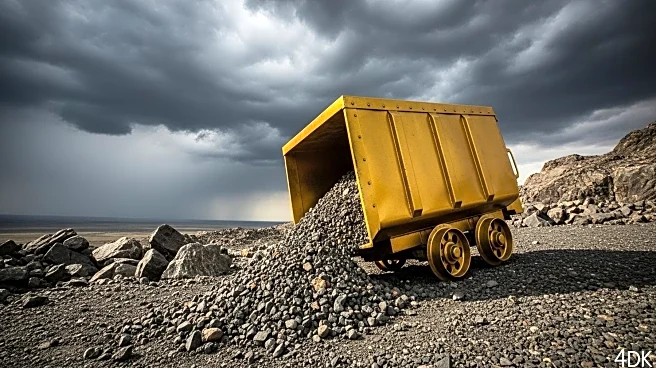What's Happening?
Freeport-McMoRan's stock has dropped by over 20% following a catastrophic incident at its Grasberg mine in Indonesia. The company declared force majeure after a mud rush on September 8th killed two workers and left five others missing, leading to a complete suspension of operations at the world's second-largest copper mine. The incident involved approximately 800,000 metric tons of wet material rushing through multiple levels of the mine. As a result, Freeport warned that its Q3 copper and gold sales would be significantly lower than previous estimates, with Q4 sales expected to be 'insignificant.' Analysts have downgraded the stock, citing significant operational impacts and a prolonged overhang on shares.
Why It's Important?
The Grasberg mine is a critical asset for Freeport-McMoRan, representing a substantial portion of its copper and gold production. The suspension of operations at Grasberg removes Freeport's lowest-cost, highest-margin production during a period of high copper prices, impacting the company's financial performance. The incident also highlights the risks associated with mining operations and the potential for significant disruptions. Investors are concerned about the timing, as Freeport had been benefiting from U.S. copper premiums due to tariff policies, which could have provided substantial additional cash flows.
What's Next?
Freeport-McMoRan expects unaffected mines to restart by mid-Q4 2025, with a phased restart of the Grasberg Block Cave beginning in H1 2026. However, a full return to pre-incident operating rates may not occur until 2027. Analysts anticipate continued volatility in Freeport's stock until more clarity emerges regarding the operational impacts and recovery timeline. The company will need to navigate the challenges of resuming operations while managing investor expectations and addressing safety concerns.










